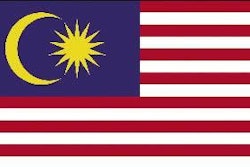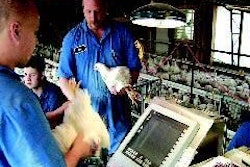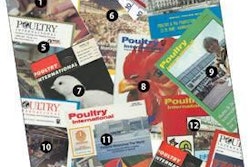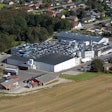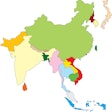Indonesia has held H5N1 ‘hostage’ and the world to ransom for several months. In response, the World Health Organisation (WHO) announced some imaginative solutions to perceived future vaccine supply problems but any co-operation from Indonesia looks doubtful judging by the increasingly aggressive rhetoric coming from Jakarta.
WHO is seriously considering building a stockpile of up to 60 million doses of vaccine against the H5N1 highly pathogenic strain of avian influenza (AI) for use by developing nations to counter any influenza pandemic, said David Heymann, assistant WHO director-general for communicable diseases on 25 April 2007. WHO believes a stockpile strategy should satisfy demands from Thailand as well as Indonesia. These countries want benefits for sharing samples of the deadly H5N1 virus (sourced from their country), which are used to design and manufacture H5N1 commercial vaccines for global use.
Developing countries have suggested that any such WHO stockpile should cover approximately 1% of their population and especially essential workers such as hospital staff and police. A rough target figure for a stockpile to be administered by WHO is 40-60 million doses of vaccine.
WHO Director General, Margaret Chan, said that the global manufacturing capacity for a trivalent pandemic vaccine – covering three strains of virus – is currently around 500 million doses per annum, rising to 1.5 billion for a single strain vaccine. “This is still not enough for a world of over 6 billion people”, said Dr Chan in Geneva. “The present manufacturing capacity is woefully inadequate to meet global demand. The issue of access to vaccines has acquired an urgency that we cannot fail to address”, she said.
WHO subsequently announced a more imaginative and self-sustaining solution, in which developing nations are encouraged to become self-sufficient in vaccine. A programme to assist select developing nations to set up and operate vaccine production facilities will be established. Vietnam, Thailand, Indonesia, Brazil, Mexico and India will each receive US$2.5 million from an $18m-fund provided by the government of Japan and the US Department of Health and Human Services. WHO estimates that each country will be producing its own vaccine against pandemic avian influenza virus (H5N1 or any other sub-type which occurs) within a period of 3-5 years.
Dr Marie-Paule Kieny, Director of the WHO Initiative for Vaccine Research, added that a second and more immediate benefit would come from increased ability to produce seasonal influenza vaccines. These infections are responsible for up to 500,000 deaths every year around the world.
Despite these initiatives and concessions, it looks doubtful whether Indonesia will start to co-operate and resume sending H5N1 human samples. The Indonesian Government has essentially gone back on its pledge made in March, when Health Minister Siti Fadiliah Supari said, “We will start sending bird ‘flu samples to the World Health Organisation immediately”, adding she was satisfied with assurances given by the global health protection body. But more than one month later, no samples are in sight.
This backtracking has led some international scientists to accuse Indonesia of holding the world to ransom over H5N1. By not sharing samples, they are preventing expert virologists and molecular biologists from following gene sequences and identifying any changes that could lead to a human pandemic or reduce the effectiveness of anti-viral drugs.
In response, Indonesia has simply upped the ante. Dr Triono Soendoro, head of the National Institute for Health Research and Development proclaiming to International Herald Tribune, “We don’t care”, saying his country was fighting for a bigger cause. Commenting on the Heath Minister’s promise made in March, Health Ministry spokeswoman Lily Sulistyowati told The Associated Press on 25 April that Supari’s criticism of the WHO sample sharing system remains as harsh as ever.
Minister Supari later claimed that Indonesia has been ready to resume supply of specimens but had held back from doing so after recent talks in Geneva with WHO on technical details that ended in deadlock. “I am afraid to send [the samples] because we have not seen WHO’s commitment assuring not to hurt us. The WHO did not show any goodwill. We are disappointed. They do whatever suits them”, Supari told the AP.
Indonesia is demanding assurances that WHO cannot give within the current format of vaccine design and manufacture worldwide. They are insisting that Indonesian samples will not be used (along with samples from right around globe) in the commercial manufacture of vaccine. Vaccines are designed and made under commercial conditions by companies who need to turn a profit. To expect commercial drug companies to make vaccines at a loss for altruistic reasons is frankly naïve.



